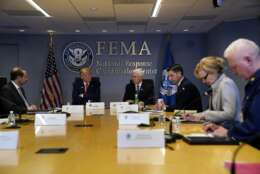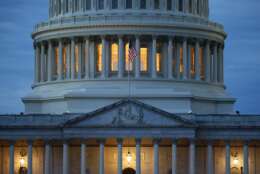Commentary
-
Now that more states and jurisdictions are easing social distancing rules, millions of people are stumbling back to pre-COVID-19 normalcy - if you can remember what that was like.
June 10, 2020 -
Before you can have continuity of operations, you need a little continuity of policy.
June 09, 2020 -
If you could work from home, would you work for less? That’s not an option for federal workers, yet, but it could be part of the major upheaval many experts predict as the world comes out of and slowly adjusts to life after the pandemic.
June 09, 2020 -
Two long serving appointees notch their next positions.
June 06, 2020 -
With phased re-openings of our communities happening at different rates across the country a return to “normal” is months away.
June 05, 2020 -
Joe Paiva, a retired Army officer and former CIO at the Commerce Department’s International Trade Administration, offers federal and industry executives some ideas for making hiring more equitable and less unintentionally biased.
June 05, 2020 -
If the government starts pushing employees to show up in offices without mandating masks and social distancing, we could see an uptick in retirement rates.
June 04, 2020 -
If you’re a nose-to-the-grindstone type who has been toiling for decades while dreaming of fun and fulfillment in retirement you might want to do a reality check.
June 04, 2020 -
As agencies responded to the novel coronavirus, telework restrictions were loosened and before we knew it federal workers were directed to use maximum telework. Then something amazing happened – they accomplished their mission.
June 03, 2020 -
Pandemic response has acted like a pressure test for federal IT systems and related modernization funding.
June 03, 2020 -
Most federal civil servants are either working from home or in a furloughed status, but all are getting paid. By contrast at least 40 million American workers have been fired or furloughed and are seeking unemployment benefits.
June 03, 2020 -
While most feds oppose WEP and GPO, today’s guest columnist said he’s looked at the background, crunched the numbers and in his opinion they are fair.
June 02, 2020 -
Outdated government IT systems and processes hinder many federal and state agencies’ ability to deliver services. This fact has been well known and disturbingly unresolved, even before the COVID-19 pandemic hit.
June 01, 2020 -
We need to focus on the new authority we have for unpriced services contracts and incorporate that so that we can really focus on the technical qualifications of vendors and drive down pricing at the task order level when it matters most.
May 29, 2020 -
Mike Hettinger and Richard Beutel, who represent Unison, a reverse auction platform provider, make the case for why Congress should let agencies use the acquisition tool for personal protective equipment.
May 28, 2020















